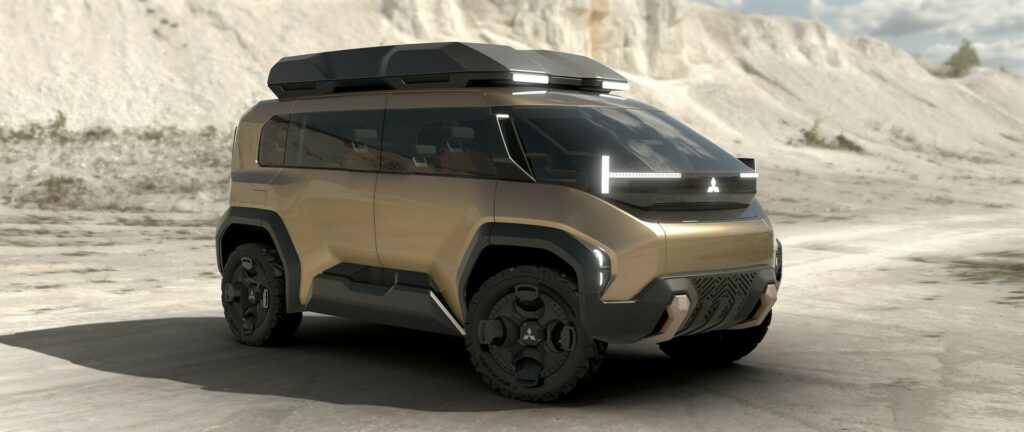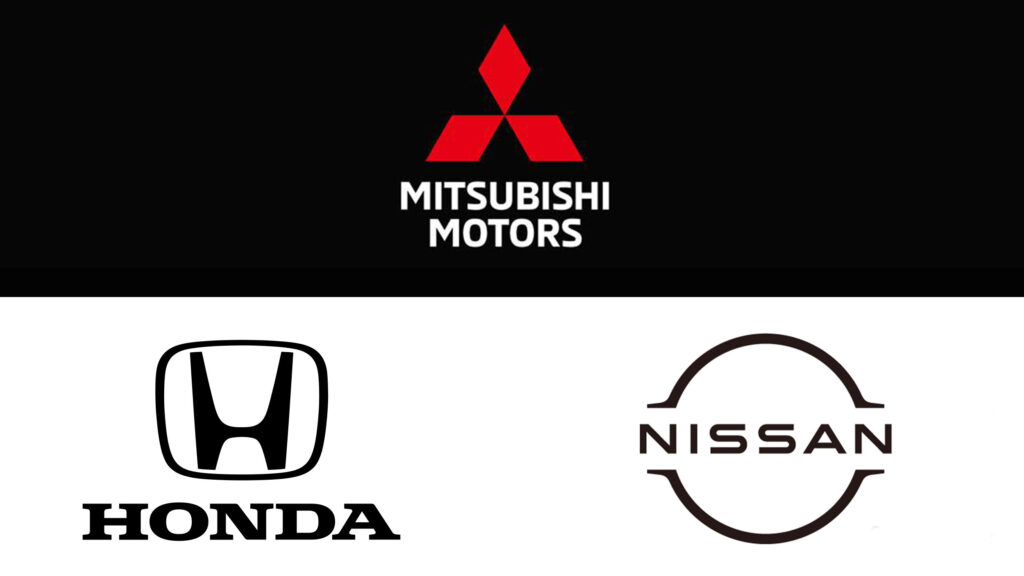- Nikkei Asia reported that Mitsubishi will join the existing partnership between Honda and Nissan.
- Honda and Nissan announced their collaboration on EVs and AI software development in March 2024.
- The report caused Mitsubishi shares to climb by 6.3 percent.
According to a new report from Japan, Mitsubishi Motors is ready to join the newly formed Honda-Nissan partnership, focused on EVs and AI software.
Entering the new alliance – originally announced by Honda and Nissan in March 2024 – could help Mitsubishi significantly reduce the R&D costs associated with electric vehicles. The three companies could also save money by standardizing AI-related software in their cars. Furthermore, they could expand their respective lineups by striking OEM deals in areas like PHEV powertrains and kei cars.
More: Honda And Nissan Team Up To Take On Tesla And China
The report comes from Nikkei Asia, without getting into specifics about the deal’s conditions. However, in the original partnership announcement, Honda and Nissan made it clear they are not planning a capital tie-up. A Goldman Sachs analyst expects that software will be the most important area in the collaboration.
Reuters reached out to Mitsubishi, Honda, and Nissan representatives for the matter, but all three of them declined to comment. Still, the report was enough for Mitsubishi shares to climb by 6.3 percent, with smaller gains for Nissan (+ 2.8 percent) and Honda (+2.6 percent).

The fact two of the three companies in the reported tie-up are already members of the wider Renault-Nissan-Mitsubishi Alliance, supposedly made negotiations easier. Goldman Sachs described Mitsubishi’s participation as a “natural progression” since Nissan owns 34 percent of Mitsubishi’s stake.
More: Honda And Mitsubishi Join Forces For EV Leasing And Battery Recycling In Japan
Earlier this month, it was reported that Toyota will work with Suzuki, Subaru, and Mazda for future EVs, following the recent tie-up between Toyota, Subaru, and Mazda for combustion engine development. This effectively divides the Japanese automotive industry into two rival camps.
By collaborating, Japanese automakers will be able to better compete with Tesla and a multitude of Chinese brands, which currently have the upper hand in EVs. The combined annual sales for Mitsubishi, Honda, and Nissan is 8.35 million units. This is almost half of the combined global output from Toyota, Daihatsu, Suzuki, Subaru, and Mazda, which is around 16 million.





